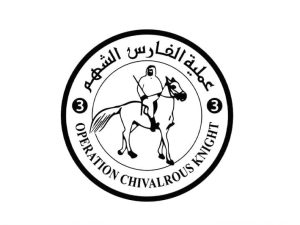RAFAH / WAM
The team from Operation Chivalrous Knight 3 on Thursday, conducted a field inspection of the ‘‘Lifeline Water Supply Project”, implemented in collaboration with the Coastal Municipalities Water Utility (CMWU) in Gaza.
The initiative aims to establish sustainable water pipelines to supply the southern areas of the Gaza Strip, as part of the UAE’s extensive humanitarian and relief efforts to support the Palestinian people in Gaza.
This project stands as one of the most vital infrastructure undertakings, designed to meet the escalating needs of displaced families and local residents amidst the severe humanitarian crisis caused by the ongoing conflict.
Implemented in cooperation with the CMWU in Gaza and in coordination with the relevant Egyptian authorities, the project involves laying a new 7-kilometre water pipeline. The line begins at the UAE’s desalination stations on the Egyptian side of Rafah and extends to Al Mawasi in southern Gaza, one of the most densely populated areas with displaced persons.
Approximately 600,000 people are expected to benefit from the project, including a significant number of children, women, and elderly individuals.
The project aims to provide a reliable supply of clean and safe water, alleviating the humanitarian and health burdens faced by residents due to limited resources, frequent water outages, and extreme summer temperatures.
This effort is part of a broader plan launched by the UAE under Operation Chivalrous Knight 3, which encompasses a comprehensive suite of relief, medical, and infrastructure projects in support of the people of Gaza.
The project is being executed under the supervision of Emirati teams in collaboration with the CMWU’s technical and field teams to ensure adherence to engineering standards and alignment with local needs.
Technical teams have confirmed that work is progressing rapidly and that implementation is on schedule, with the aim of launching the water supply to distribution areas as soon as possible.
The project reflects the UAE’s commitment to delivering sustainable and impactful humanitarian support to Gaza, especially in light of the unprecedented challenges caused by ongoing hostilities and the collapse of critical infrastructure across multiple sectors.
Once operational, the project is expected to ease the daily suffering of thousands of families and serve as a model for regional and international cooperation in responding to humanitarian crises.
 The Gulf Time Newspaper One of the finest business newspapers in the UAE brought to you by our professional writers and editors.
The Gulf Time Newspaper One of the finest business newspapers in the UAE brought to you by our professional writers and editors.
